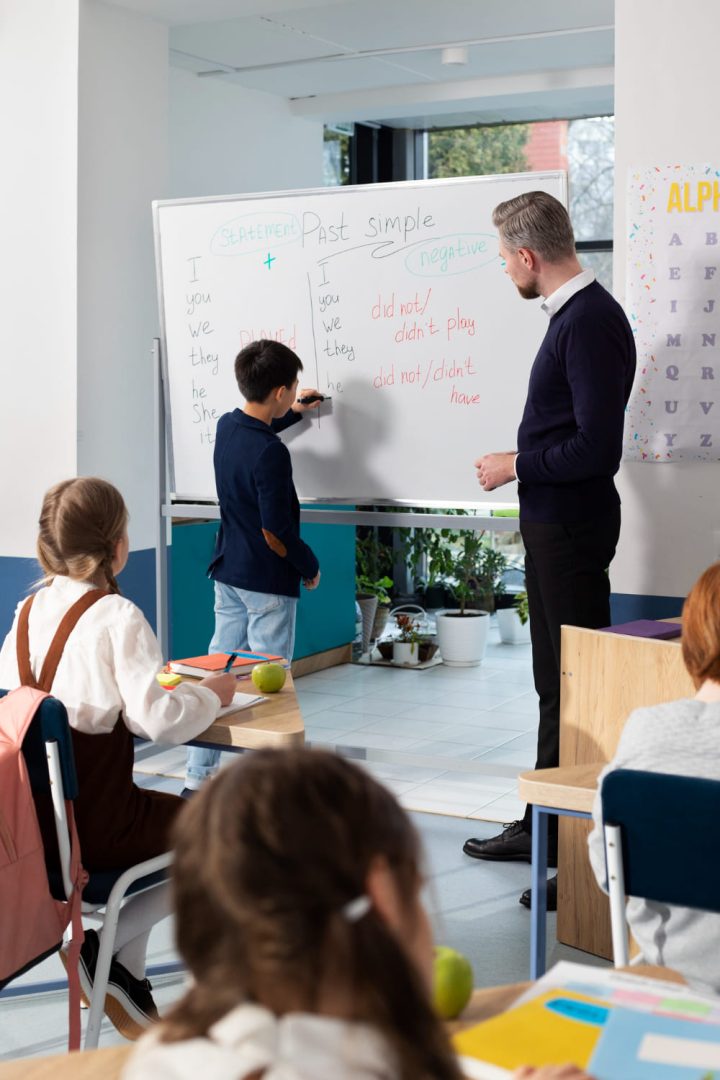“I’m reading so much and exposing myself to so many new ideas. It almost feels like the chemistry and the structure of my brain is changing so rapidly sometimes,” ― Emma Watson
Table of Contents
Toggle
In the ancient era, Gurus/Teachers used to state that reading is a pace of betterment for every pupil where the Goddess of Knowledge stays in the pure heart of students & transforms the frequency of sound into the vocal chord. With her blessings, reading can be the pathway to success & backend of all readers to achieve high heights. So, developing strong reading habits in students is more important than ever. Reading not only enhances knowledge but also sharpens critical thinking, boosts creativity, and improves communication skills. Let’s understand, why nurturing reading habits in students, and the crucial role of guardians and mentors play in this journey.
Why Developing Reading Habits in Students
- Knowledge Acquisition: Reading exposes students to diverse ideas, cultures, and perspectives, expanding their understanding of the world.
- Critical Thinking: Engaging with various texts encourages students to analyze, evaluate, and synthesize information, fostering critical thinking skills crucial for academic success and personal growth.
- Vocabulary Enhancement: Regular reading enriches vocabulary, enabling students to express themselves more articulately in both spoken and written communication.
- Stress Reduction: Immersing oneself in a good book provides an escape from the stresses of everyday life, promoting mental well-being.
- Empathy and Emotional Intelligence: Fictional narratives allow students to empathize with characters’ experiences, fostering emotional intelligence and empathy.
How to Develop Reading Habits
- Insist With an Example: Guardians and mentors should set as model reading behavior by demonstrating their own love for reading and making it a visible part of daily life.
- Create a Reading-Friendly Environment: Ensure access to a variety of reading materials at home and school, including books, magazines, and online resources, catering to students’ diverse interests and reading levels.
- Designate Reading Time: Encourage students to allocate a specific time each day for reading, whether it’s before bedtime, during breaks, or as part of the curriculum.
- Encourage Discussion: Foster a culture of discussion around books by engaging students in conversations about what they’re reading, sharing recommendations, and organizing book clubs or reading circles.
- Celebrate Achievements: Recognize and celebrate students’ reading milestones and accomplishments to reinforce positive reading habits.
The Role of Guardians and Mentors
- Support and Encouragement: Guardians and mentors play a pivotal role in providing emotional support and encouragement to students, helping them overcome challenges and setbacks in their reading journey.
- Guidance in Book Selection: By guiding students in selecting age-appropriate and engaging reading materials, guardians, and mentors can ignite their passion for reading and broaden their literary horizons.
- Reading Together: Shared reading experiences, such as reading aloud together or discussing books, strengthen bonds between guardians, mentors, and students while fostering a love for reading.
- Setting Expectations: Establishing clear expectations and goals for reading habits, along with regular check-ins and feedback, helps students stay accountable and motivated.
- Spend Quality Time: The universe is materialistic and only the way to connect with our lovelies having and spending quality time together to acquire reading skills in the life of our blooming child.
In short, cultivating reading habits in students is a multifaceted endeavor that requires a collaborative effort from guardians, mentors, and educators. By instilling a love for reading early on and providing ongoing support and guidance, we can empower students to become lifelong learners and critical thinkers, equipped to navigate the complexities of the world with confidence and insight.







